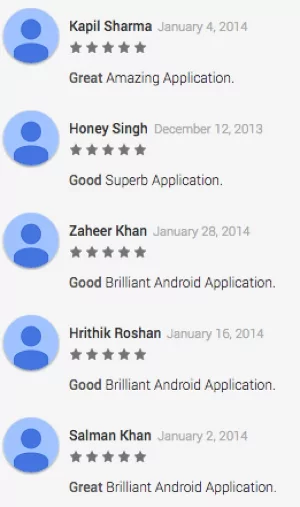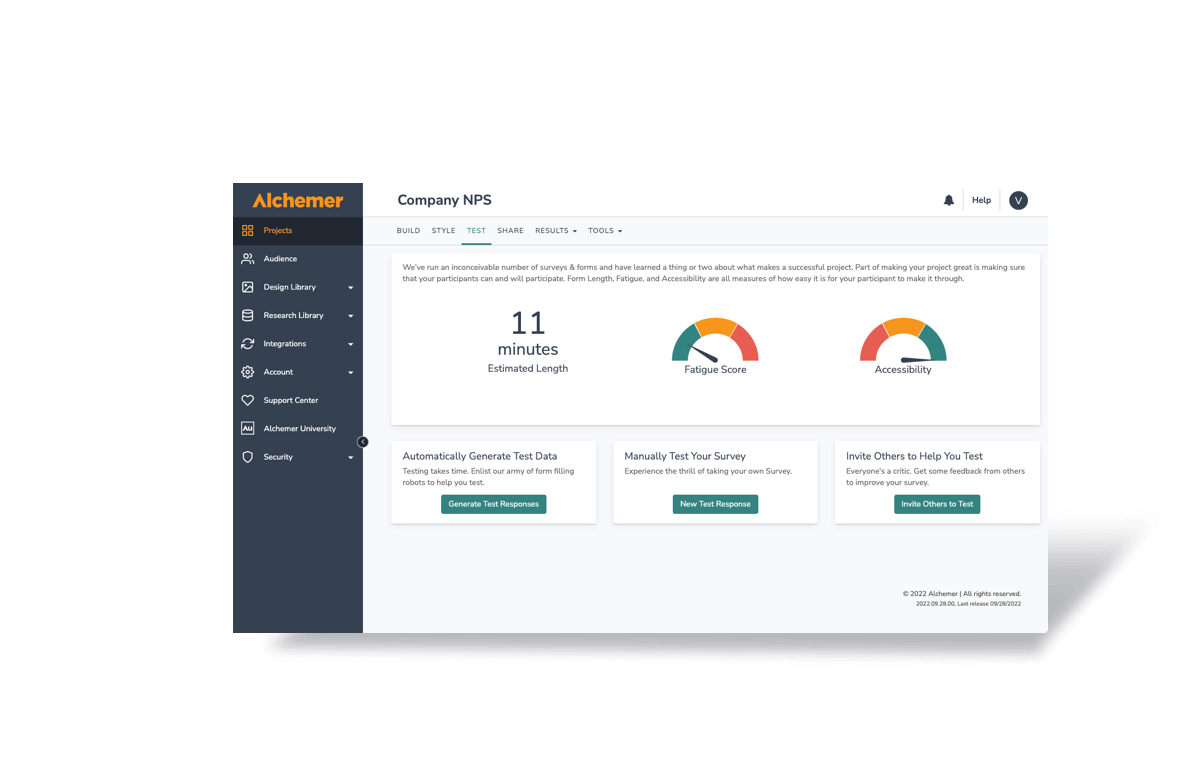The app stores are more competitive every day and app publishers are looking for more intelligence and organic advantages in order to build a sustainable mobile business. This means investing in tools like Alchemer Mobile (formerly Apptentive) for in-app feedback and retention and poring over in-app analytics, attempting to glean important insights that will unlock another step up in growth.
Black Hat App Store activities take aim at App Ratings
Unfortunately, some ambitious app publishers aren’t limiting their activities to just white hat organic strategies. Sometimes they take shortcuts in an attempt to game the top charts. For the past several years, we’ve noticed that a number of “top” app publishers appear to be paying people to create fake reviews, hoping that it’ll help them boost their app store conversion rates and move them up the charts.
Anecdotally, faking reviews and gaming the app stores seems to be a practice that is getting used more broadly. Both the Apple App Store and Google Play Store have made multiple changes to their ranking algorithms over the past year and some of the most recent shifts have clearly increased the importance of app ratings so the benefit of faking reviews is growing larger.
With the broader acceptance that ratings and reviews affect an app’s ranking, plenty of sites and services have popped up offering reviews for a price. Companies like BuyAppStoreReviews, BestReviewApp, and AppRebates promise reviews to help you climb to the top of the app stores. Fiverr has thousands of people offering reviews in exchange for $5. We’re not going to link to these sites to boost their SEO profile, but if you want to take a look at them it’s clear that there’s a market for black hat, non-organic app store rating activity.
Fake reviews aren’t limited to the app store, either. People have been doing this for years on Amazon and it’s estimated that up to a third of online reviews are fake. When dealing with ephemeral and digital products, research has consistently shown that consumer ratings and reviews are very impactful on purchase decisions. So there’s a benefit to having ratings and reviews for software, e-books, music and many other products – what can we do to make sure that they’re genuine and helpful to the consumers they’re supposed to serve?
What do fake reviews look like?

A rare peak at a purported fake app review farm. Source: BusinessInsider
While it is impossible to always know if reviews were paid or not, there are some very clear examples of apps who have fake reviews. For example, by looking through reviews on a per reviewer basis, you can spot apps that are all using the same services to acquire app reviews and have similar reviews from the same group of people in the app store. Notice the similarity in brevity and phrasing.
Another way to identify fake reviews is to look for review text that is identical – this happens more often than you might think. For example, here’s a sample of reviews taken from the Android app, Global Banking and Finance.com.
What you’re seeing is that there are a lot of people out there willing to make multiple accounts on the various app stores in order to copy and paste their reviews multiple times in order to finish their task. Clearly the publishers buying fake reviews aren’t terribly concerned about variety and uniqueness in the creation of these reviews.
Fake app store reviews aren’t limited to just positive reviews either – we hear from clients all the time that one of the reasons they love having Alchemer Mobile (formerly Apptentive) on their side is to combat their competitors who are willing to pay for fake negative reviews. Similarly to the fake positive reviews, you don’t have to look very hard to find large numbers of 1 star reviews that use the exact same language to denigrate an app, hoping to drop it in the app store search results and rankings.
In pursuit of a better App Store experience
Here at Alchemer Mobile (formerly Apptentive), because we’re obsessed with helping companies better serve their mobile app customers, we’ve been watching this behavior unfold and expand and wondered how we could start to combat it. Recently, when we announced our Love Score, we knew that we had an opportunity to start creating a better, more comprehensive view into what customers truly think about the apps they use. We wanted to really identify the apps that customers love and to summarize the state of the app stores today.
However, we knew we had to account for apps that contain fake reviews – our algorithm was originally easily fooled by the apps that have been paying people to boost their ratings and diminish others. In order to counteract this bad behavior we created a metric we call Reviewer Quality. By taking a look at the length and word usage of every review in the app store, we’re able to create scores for app store reviewers. All the individual scores for the entire reviewer base of a mobile app makes up the Reviewer Quality of the app.
Reviewer Quality helps us locate apps that have a significant proportion of fake reviews and minimizes the positive sentiment that has been falsely created as well as diminishing the fake negative sentiment that is sometimes manufactured as well. Our reviewer quality analysis helped us find the examples of fake reviews we’ve shared above.
Digging further into our data, we realized that the trends we can identify in our data was fascinating as an analysis of the entire app ecosystem. Here are a few key conclusions we’ve been able to make:
iOS Apps Have More Fake Reviews
Even though many share the comment lament that “Google Play is full of fake apps and fake reviews” what we’ve found is that the iTunes app store is actually the leader in fake reviews. Our data reveals that 55% of the apps flagged for containing fake reviews were iOS apps and 45% were Android apps. This might have something to do with the app download volume advantage that iOS enjoyed up until the middle of last year. However, we also think that Google Play’s requirement of a Google + account could have diminished the fake review problem a bit because it requires more of a clear notion of identity.
However, the wort offenders appear to be Android apps. Of the 100 apps with the worst Reviewer Quality scores, 80% of them are Android apps.
Games Contain The Most Fake Reviews
In our list of apps flagged for fake reviews, games represented 41% of the apps with fake reviews. The Games category is the most competitive category in both app stores, so it’s not super surprising that games also take the largest portion of the fake reviews.
Writing A Review Is More Work, Except When It’s Fake
When comparing all of the apps that were flagged for containing fake reviews to the rest of the app ecosystem, the apps containing fake reviews had a higher percentage of ratings with a review written. For the app store as a whole, about 20% of ratings also include a review. However, apps that looked like they had fake reviews had a much higher ratio: on average 35% of ratings for flagged apps contained a review – that’s a 75% increase over the app store average!
Prevailing as a White Hat App Marketer
If you’re an app marketer working hard to get your app noticed, these black hat app store tactics can be extremely frustrating. To combat these tactics there are a number of actions you can take to protect your mobile app from fake negative reviews and increase your organic reviews to compete with apps that pay for reviews.
1. Be Vigilant!
You can help make sure that competitors who pay for negative reviews for your app are wasting their money. Both the Apple App Store and Google Play have a process for reporting fraudulent reviews. For Google Play, there is an option next to every review on an applications Play Store page where you can mark it as spam. You can also use Google’s help center to report inappropriate activity, including fake reviews (click “Contact Us” in the top right corner).
For the Apple App Store, you should report fake reviews that have been given to your app via iTunes Connect. Under the “Support” tab, you can find a link to “Contact Us,” which leads to a contact form. Choosing the following topics in order, “App Store Questions,” “Customer Reviews,” and “Report a Fraud Concern” you are able to easily report any issues you have noticed.
Besides looking out for fraudulent activities, reviews are an important source of customer insight, so monitoring them regularly to understand customers’ issues is a core requirement.
2. Be Proactive and Utilize Your App Evangelists
Reading through every negative review takes time and it isn’t always clear whether a review is fake or not. You already have the ultimate tool that can positively impact your ratings and make any paid fake reviews even more meaningless – your customers!
Be proactive and reach out to your app evangelists. Get the people who love your app to tell the world why they love it. Alchemer Mobile (formerly Apptentive)’s in-app rating prompts are the perfect tool for connecting with your most happy customers and politely asking them for a review. A simple question asked at the right time can easily result in a review increase of 300% or more.
3. Don’t Wear A Black Hat
Resorting to using black hat app store tactics may be tempting, but it is not a sustainable or appropriate solution for improving your own reviews or lowering a competitor’s rating. Over the years there have been several updates to both Google Play and the Apple App Store to combat scammers, fake apps, and manipulative tactics to gain ratings and reviews.
By refusing to resort to such tactics you are reducing the number of potential fraudulent cases Google and Apple need to handle, making it easier for them to quickly handle any cases that do arise. Stopping these practices from ever happening may never be entirely possible, but by following appropriate methods you are improving the quality of the app store and promoting positive growth in the app developer community.
If you have any ideas on how we can further utilize our data to provide valuable information please share in the comments below. As always, questions and comments are welcome and encouraged.





